7 States Have Banned Vapes So Far. Is All of America Next?
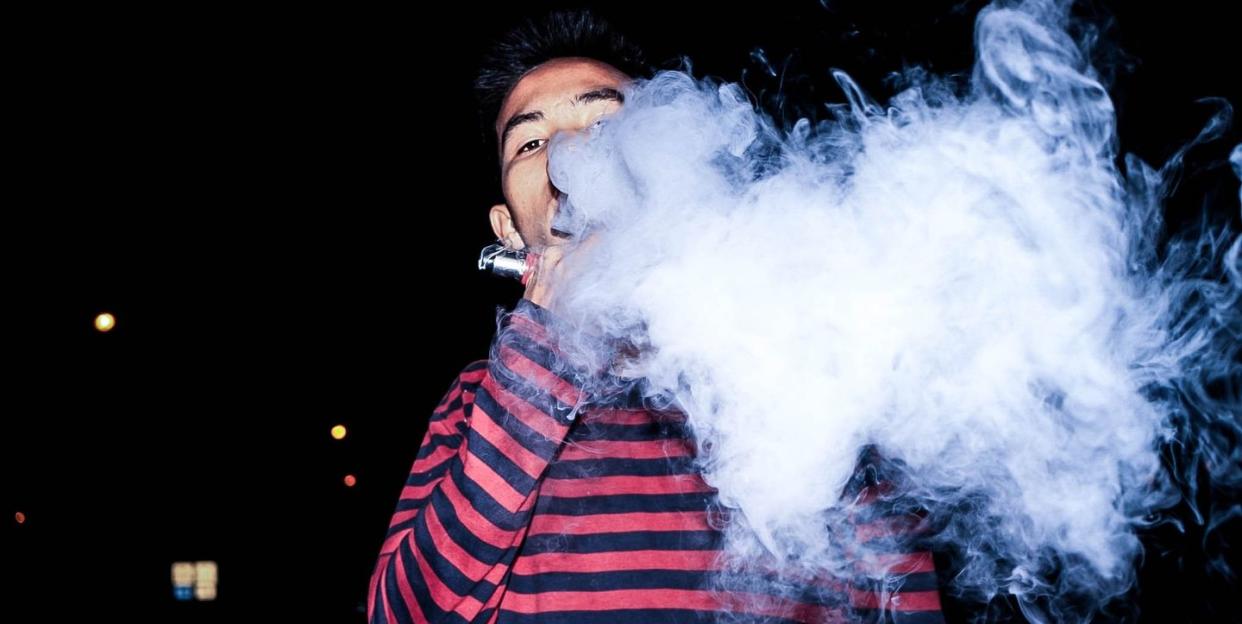
Seven states in America have gone all-in on e-cigarette bans. Massachusetts outdid earlier vape bans in New York and Michigan by banning the sale of all vape products—not just flavored ones. States from Rhode Island to Montana to Oregon are enacting their own bans as more consider similar regulation. Everywhere you look, there's a new ban, and new backlash; New York's ban was actually blocked just this month. This fresh wave of e-cigarette outrage has been building for a while now.
Vaping used to be little more than a joke—you imagined a vape user as a slimy kind of dude with a fedora blowing milky clouds across the sidewalk. Then the cool people caught on, and it became a fascination. Was Juul actually a street style brand? Could it save the world from Big Nicotine? We didn't know much about these electronic sticks, but Leonardo DiCaprio was fully on board.
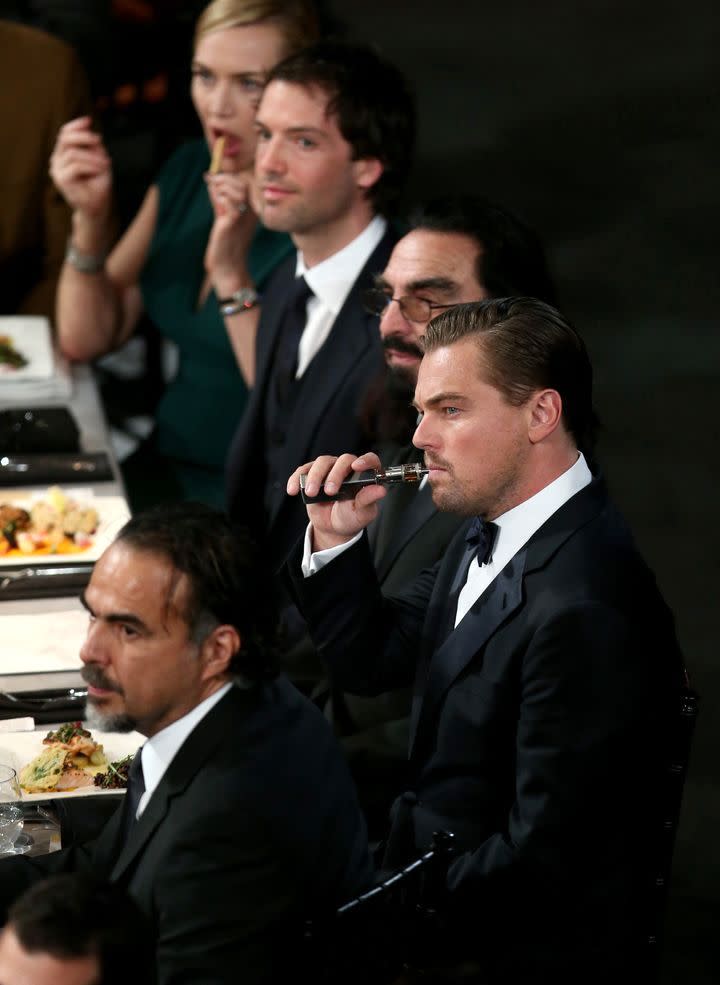
And then the kids took to vaping. Last year, the Food and Drug Administration started to look into Juul and other e-cigarette companies' marketing practices to see if they were targeting minors—especially with fun, fruity flavor pods. Then, in December, a report found that vape usage had skyrocketed among high schoolers in 2018 alone. These kids weren't using vapes to lessen nicotine dependence, like many adults were (and, as the Centers for Disease Control conceded, was a potential benefit of vaping). They weren't hooked on nicotine to begin with. But research indicated that vape usage could lead to nicotine and tobacco use in these young people.
A day later, the Surgeon General issued an advisory recommending state and local governments ban indoor vaping and tax the sales of e-cigarettes, to protect America's youth. Some states have gone even further, with governors moving quickly to enact bans on e-cigarette products until more conclusive information is reported.
And here we are now. As of October, the CDC found more than 1,200 cases of lung injury in the U.S. that were linked to vape usage, 26 of which led to death, and the director of the CDC told Esquire he believes it's just "the tip of the iceberg." News outlets are ramping up reporting on the public health issue—NBC reported that some vape users are actually turning back to cigarettes to lessen their Juul dependence, which is, needless to say, ironic—and governments are ramping up serious regulations. The CEO of Juul resigned in late September as his company announced it would halt all forms of advertising. The federal government might even step in.
On the flip side, vape proponents say bans will keep adults hooked on regular cigarettes, which we know are extremely harmful, and lead to a vaping black market—especially if vape stores are forced out of business. They also contend that most vaping illnesses are linked to "bootleg" THC pods, not nicotine pods like those sold by Juul. While the CDC's investigation has found the same, that a majority of vaping illnesses are linked to bootleg THC pods, it warns: Not all of them are.
So where, exactly, are vape bans going into effect, and what do they cover?
San Francisco (and possibly Los Angeles)
In June, San Francisco became the first major U.S. city to put a blanket ban on the sale and distribution of all electronic cigarettes—not just flavored ones. Ironically, Juul is headquartered in San Francisco, and it is pouring millions into a November ballot initiative that would overturn the ban. The ban goes into effect in early 2020, assuming S.F. residents don't vote to overturn it before then.
And it seems Los Angeles is eyeing San Francisco's ban appreciatively. A measure to ban all e-cigarette sales was introduced to city council last week, and if enacted, the ban would last until the FDA deemed e-cigs safe. In other words, for a very long time.
Michigan
In early September, Michigan became the first U.S. state to put a ban on the sale of flavored e-cigarettes, which has since gone into effect. "My number one priority is keeping our kids safe and protecting the health of the people of Michigan," Governor Gretchen Whitmer told The Washington Post. The ban will be in place for six months, after which it can be renewed. It covers sweet, fruit flavors as well as mint and menthol, but allows the sale of tobacco-flavored vape products.
New York
New York quickly followed Michigan's lead in mid-September. Governor Andrew Cuomo issued an "emergency" executive order to take flavored vape products off shelves to prevent underage New Yorkers from using them. He said the goal of his executive action was to crack down on retailers illegally selling to minors, to regulate "deceptive" marketing practices of vape products to minors, and to raise the legal age to buy electronic cigarettes from 18 to 21, CBS News reports. But an appeals court quickly moved to block the ban in October, meaning the state is heading into a legal battle over vapes this month. As of now, the ban is not in effect.
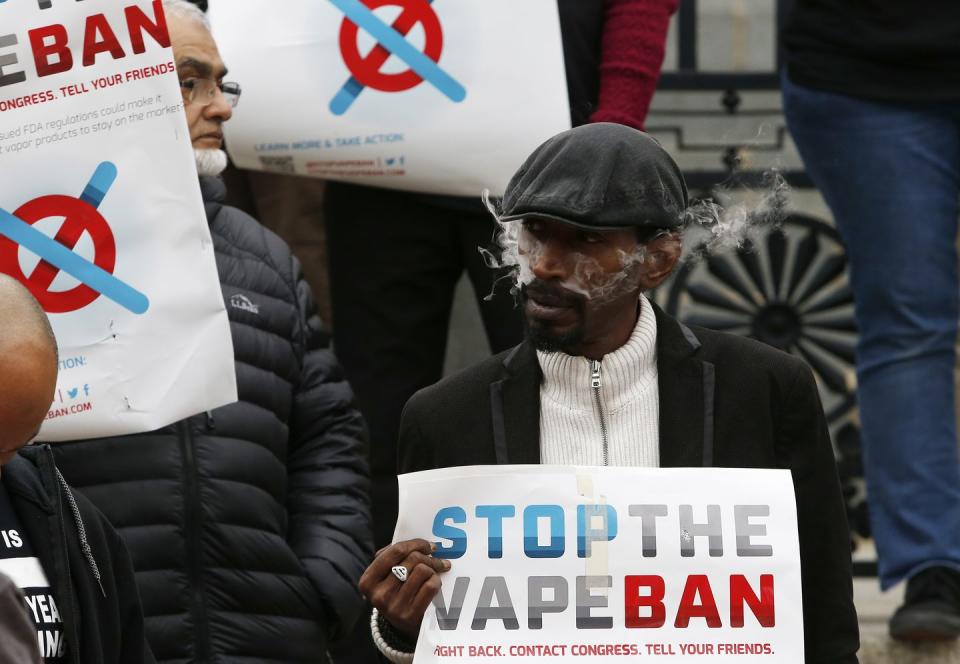
Massachusetts
Massachusetts' late-September ban on all vape sales—including tobacco e-cigarette and marijuana e-cigarette products (weed is legal in the state)—is the most restrictive of any state and mirrors San Francisco's citywide ban, but it will only be in effect for four months. Governor Charlie Baker said in a statement that the temporary ban, which has already started, would give experts time to research vaping-related illnesses and figure out how to regulate them properly, according the The Washington Post. The state also hopes to reduce teen usage.
Rhode Island
A day after Massachusetts' vape ban was announced, its neighbor Rhode Island followed suit with a slightly less-restrictive ban. Rhode Island's governor Gina Raimondo enacted a statewide ban that only covers flavored e-cigarette products, making it illegal to manufacture, distribute, or sell them, reports the Providence Journal. "This is a public-health crisis, and the regulations announced today will help to protect our kids’ health," Raimondo said. The ban will last for four months, at which point it can be extended.
Washington
Washington State kicked off October by announcing a ban on flavored vape products (including those with THC), which went into effect on Thursday, October 9. Like Rhode Island, the emergency rule will last for four months and could be extended. "We need to act for the public health of our people," said Washington governor (and former Democratic presidential candidate) Jay Inslee when he announced his plans for the ban. "I’m confident this executive order will save lives."
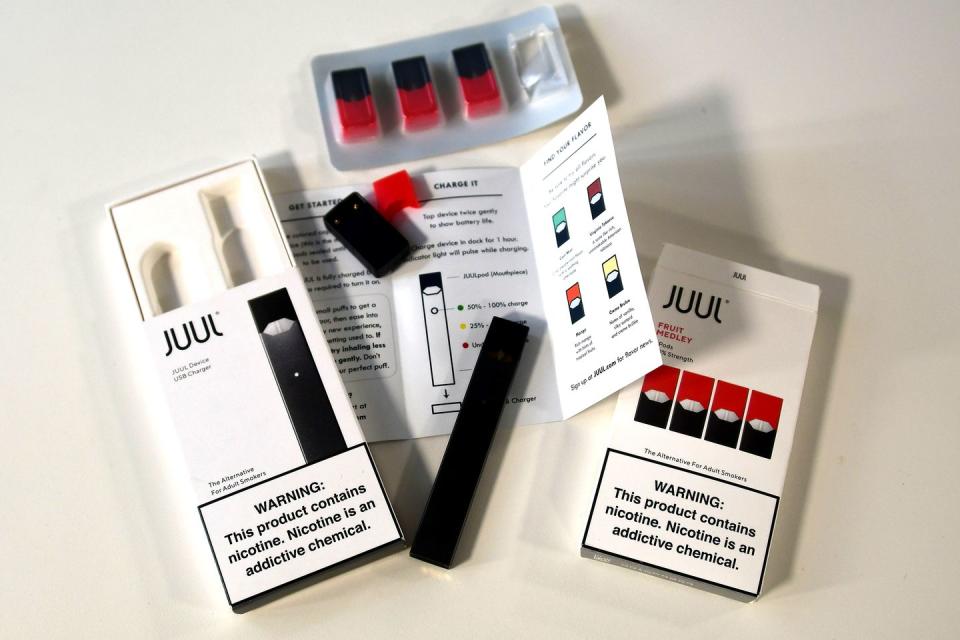
Oregon
Oregon followed on Washington's heels, enacting its statewide ban on flavored nicotine and cannabis e-cig products this week. Oregon's ban will last for six months. Interestingly, the ban does not apply to products that use 100-percent pure marijuana terpenes, which give vape products flavor and scent, the Associated Press reports. The exception makes some sense, as many of the products the CDC has linked to vaping illness contained additives, instead of pure marijuana terpenes, for flavor.
Montana
Montana has its own 120-day vape ban in the works. Covering the sale of all vape products that contain flavored nicotine, THC, and CBD, the ban will start on October 22 and last for four months. However, it seems as if the ban cannot be extended past those 12o days, USA Today reports. Montana governor Steve Bullock said the ban would protect Montana's teens.
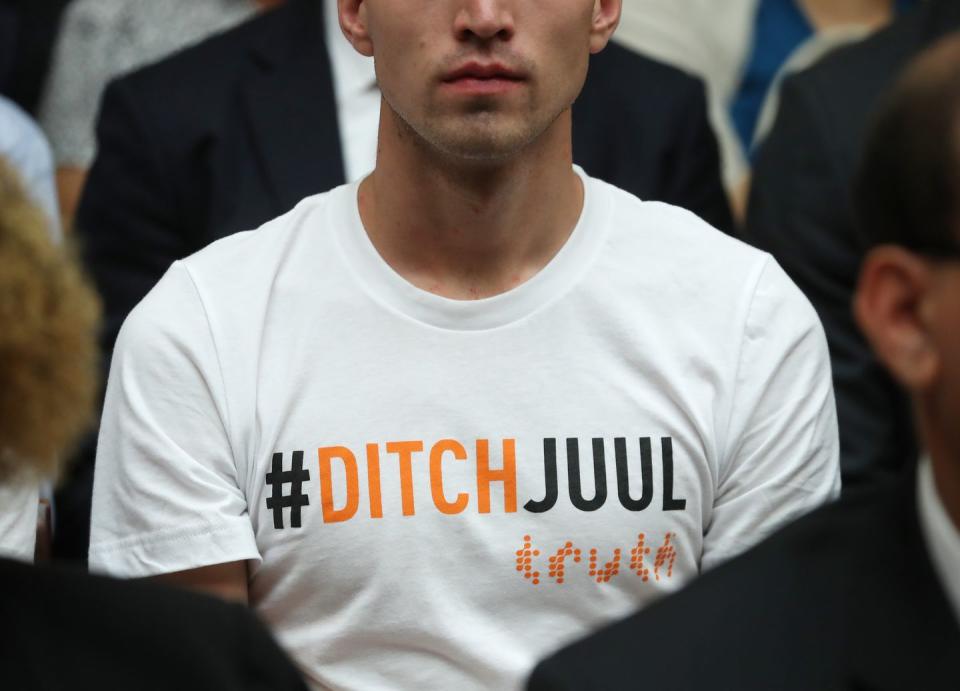
America as a whole—maybe
Following initial CDC reports that linked deaths to vaping—and very likely at Melania's behest—last month President Trump announced that the federal government would work for the removal of flavored e-cigarettes from the market and put out "some very strong recommendation" about vape usage within the next couple of months.
But then, a day later, Trump tweeted, "While I like the Vaping alternative to Cigarettes, we need to make sure this alternative is SAFE for ALL! Let's get counterfeits off the market, and keep young children from Vaping!" This seems to indicate a step backwards, pivoting attention to so-called "counterfeits"—which tends to refer to those bootleg THC cartridges, which is another issue entirely—instead of all flavored e-cigs.
Separately, Congress recently held public hearings to learn more about vaping in America. So who the hell knows how this one will pan out.
This story has been updated with information about additional vape bans.
You Might Also Like

